
The Chef Next Door
¥193.85
Improve your confidence and add joy to your home cooking with this beautiful, practical, full-color cookbook filled with information, techniques, and more than 100 recipes from the Food Network favorite and critically acclaimed chef of New York’s Empire Diner restaurant.Amanda Freitag is a master at knocking out fabulous meals in her restaurant kitchen and on the set of Food Network’s Chopped and Iron Chef America. But until recently, she was totally intimidated to cook at home in her tiny apartment kitchen, relating to the fears of many home cooks. She realized she wasn’t alone!She set out to help other home cooks and created a list of restaurant-quality recipes that shine in the home kitchen. The Chef Next Door teaches home cooks a wide range of confidence-instilling skills, tricks, and tips that Amanda has picked up working in professional kitchens and cooking competitively on television. In her bright, lively voice, she helps you master the basic techniques that are the foundation of good, flavorful cooking. She also teaches you how to think like a chef—to consider seasonality, balancing flavors, understanding the steps, and learning how to improvise—to create a menu and execute dishes with pro techniques, as if she were right there in the kitchen with you.You’ll find everything from the basics—sauces, marinades, stocks, and rubs—to first impressions, salads, and easy dinner recipes, and will even become skilled in making “The Scary Stuff”—recipes that may seem out of reach but are not. With The Chef Next Door, you’ll be able to dazzle friends and family with a diverse range of dishes, such as Spinach Feta Pies, Kale and Farro Salad with Aged Goat Cheese, Lusty Lemon Chicken, Pop’s Beer-Braised Bold Beef Stew, Mediterranean Potato Salad, Marinated Artichokes, Cocoa Carrot Cake, and more.Filled with beautiful color photographs that show how achievable good food really is, The Chef Next Door makes confident home cooking a breeze.

Amistad
¥193.85
From the director of the NAACP Award–nominated documentary comes this gorgeous companion book to celebrate dark-skinned women. Black has never been more beautiful. Dark Girls is a testament to the strength and grace of women everywhere, no matter their skin tone, upbringing, or education. Featuring such celebrities as Lupita Nyong’o, Vanessa Williams, Sheryl Underwood, Judge Mablean, and Loretta Devine, Dark Girls presents outstanding women from all walks of life, sharing intimate insights into what their dark skin means to them. Combining Barron Claiborne’s brilliant photography, Shelia Moses’s touching narrative, and Bill Duke’s extraordinary vision, Dark Girls is a beautiful and empowering work to be treasured by women of all ages. This thoughtful, sophisticated, and uplifting collection captures the elegance of dark skin—joyfully showcasing that we truly are beautiful for who we are.

And Still I Rise
¥193.85
A companion to the PBS series And Still I Rise, hosted and produced by the preeminent harvard scholar Henry Louis Gates, Jr. This illustrated chronology details the most salient events of the last half century in African American history, from the climactic moments of the civil rights movement—the assassinations of Malcolm X and Martin Luther King, Jr., and the passage of the Voting Rights Act of 1965—and the once unimaginable, and now nearly complete, two-term presidency of Barack H. Obama. From Selma to Ferguson, affirmative action to the Forbes list, Motown to Def Jam, "Black Is Beautiful" to "Black Lives Matter," And Still I Rise is a record of a people who have made astonishing progress since the King years, climbing to the highest rungs of society and revolutionizing global culture, but who also confront daunting challenges within a nation still struggling over issues of inequality. The authors' year-by-year approach vividly chronicles the people and events that have irrevocably shaped the African American community and the nation as a whole. At the root of And Still I Rise is a seemingly simple question: What binds African Americans togetherIs it the inheritance of memories and experiences across timeIs it the legacy born of fighting a system of laws that, for such a long portion of American history, drew a color line based on "one drop of blood?" Is it the common cause that has come from fighting for freedom and equality, or the cultural ties that unite a people through the cultural and social institutions, the sacred and secular forms and songs that speak to their epic journeyOr, given the sheer diversity and divergence of some forty million people, is it even possible to think of this "nation-within-a-nation" as a unified cultural or social entity at allAccompanying photographs of signal moments in the political and social evolution of Black America are images of the accomplishments of black thinkers and artists, entertainers and writers, sports figures and businesswomen and -men, professionals and workers, who have helped to define American culture, in all of its manifestations. Comprehensive but in no way exhaustive, And Still I Rise is intended to start a conversation, within and between generations and races.

The Mad Boy, Lord Berners, My Grandmother, and Me
¥193.85
Like The Bolter and Portrait of a Marriage, this beguiling, heady tale of a scandalous ménage à trois among England's upper classes combines memoir and biography to re-create an unforgettably decadent world. Among the glittering stars of British society, Sofka Zinovieff's grandparents lived and loved with abandon. Robert Heber-Percy was a dashing young man who would rather have a drink than open a book, so his involvement with Jennifer Fry, a gorgeous socialite famous for her style and charm, was not surprising. But by the time Robert met and married Jennifer, he had already been involved with a man—Gerald, Lord Berners—for more than a decade. Stout, eccentric and significantly older, Gerald was a composer, writer and aesthete—a creative aristocrat most at home in the company of the era's best and brightest minds. He also owned one of Britain's loveliest stately homes, Faringdon House, in Oxfordshire, which under his stewardship became a beacon of sybaritic beauty. Robert and Gerald made an unlikely couple, especially because they lived together at Faringdon House when homosexuality was illegal. And then a pregnant Jennifer moved into Faringdon in 1942, creating a formidable ménage à trois. In this gorgeous, entertaining narrative of bohemian aristocracy, Sofka Zinovieff probes the mysteries of her grandparents and the third man in their marriage: Gerald, the complex and talented heir to a legendary house, its walls lined with priceless art and its gardens roamed by a bevy of doves, where he entertained everyone from Igor Stravinsky to Gertrude Stein. What brought Robert and Jennifer together under his roof, and why did Jennifer stay—and marry RobertBlending memoir and biography in her quest to lay old ghosts to rest, Zinovieff pieces together the complicated reality behind the scandals of revelry and sexuality. The resulting story, defined by keen insight, deep affection and marvelous wit, captures the glory and indulgence of the age, and explores the many ways in which we have the capacity to love.
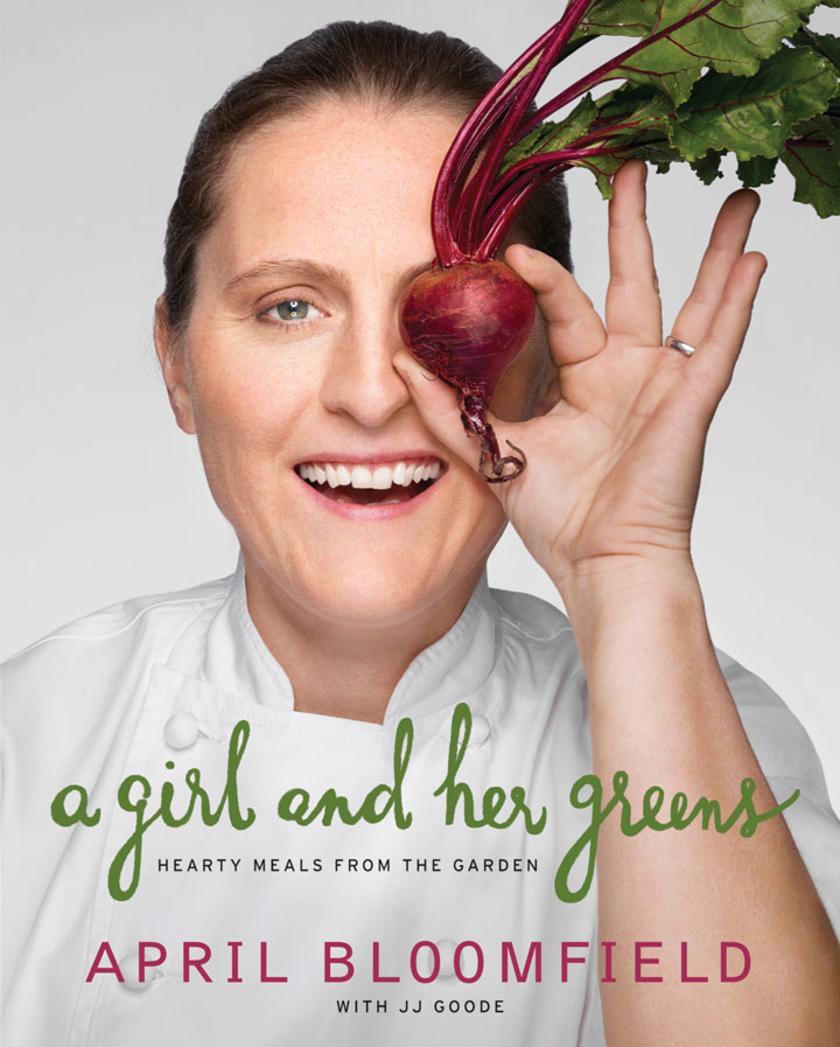
A Girl and Her Greens
¥193.79
The vegetable-centric follow-up to the beloved cookbook A Girl and Her Pig, by the winner of the 2014 James Beard award for Best Chef in New YorkFrom the chef and author of the critically lauded A Girl and Her Pig comes a beautiful, fully illustrated cookbook that offers scrumptious seasonal recipes for her true love—vegetables. Although her name is practically synonymous with nose-to-tail cooking, April Bloomfield's heart belongs to the humble potato, to sweet corn and zucchini, to winter squash and Treviso, to sugar snap peas and ramps.In recipes such as Whole Pot-Roasted Cauliflower with Tomatoes and Anchovies, Tagliatelle with Asparagus and Parmesan Fonduta, and Crushed Spring Peas with Mint, April demonstrates the keys to her unforgettable food: honest ingredients, attention to detail, and affection for the sensual pleasures of cooking and eating.Lively and down-to-earth, A Girl and Her Greens features insightful sidebars and tips on April's techniques and charming narratives that reveal her sources of inspiration.
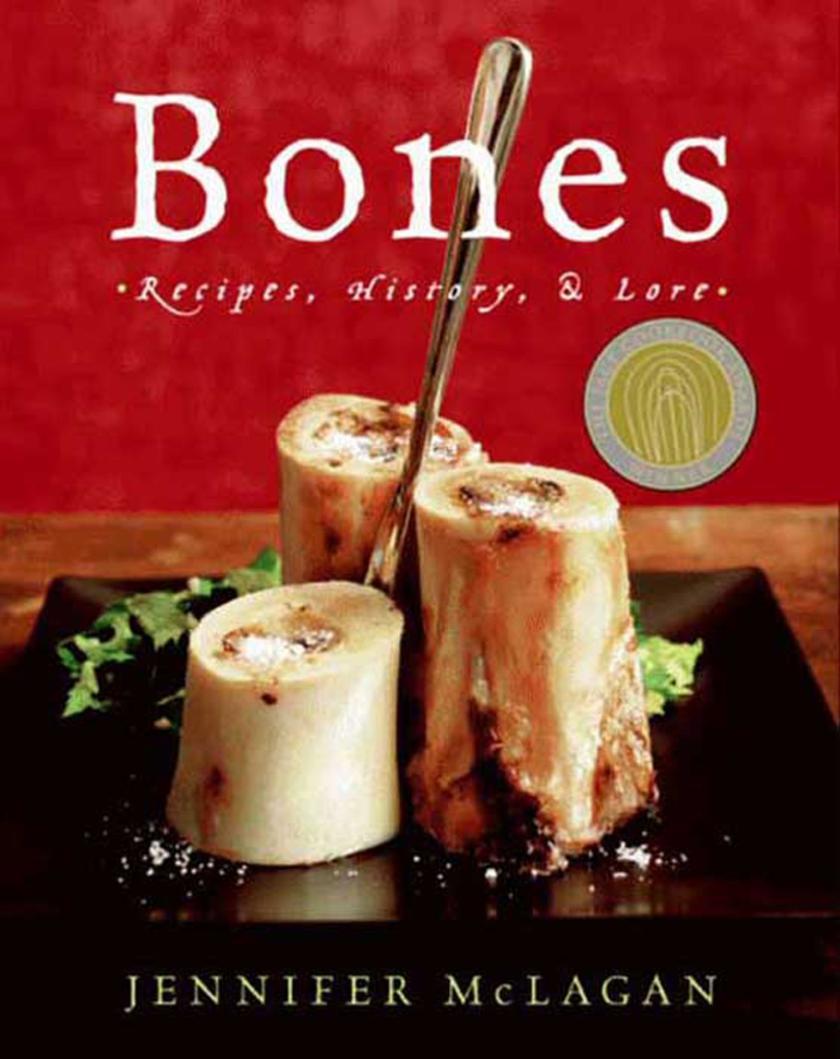
Bones
¥193.79
Top food stylist and food writer Jennifer McLagan has a bone to pick: too often, people opt for boneless chicken breasts, fish fillets, and cutlets, when good cooks know that anything cooked on the bone has more flavor -- from chicken or spareribs to a rib roast or a whole fish. In Bones, Jennifer offers a collection of recipes for cooking beef, veal, pork, lamb, poultry, fish, and game on their bones.Chicken, steak, and fish all taste better when cooked on the bone, but we've sacrificed flavor for speed and convenience, forgetting how bones can enhance the taste, texture, and presentation of good food -- think of rack of lamb, T-bone steak, chicken noodle soup, and baked ham. In her simple, bare-bones style, Jennifer teaches home cooks the secrets to cooking with bones.Each chapter of Bones includes stocks, soups, ribs, legs, and extremities (except for whole fish -- they don't have any). Many of the recipes are simple, with the inherent flavors of the bones doing most of the work. There are traditional, elegant dishes, such as Roasted Marrow Bones with Parsley Salad, Olive-Crusted Lamb Racks, and Crown Roast of Pork, as well as new takes on homestyle favorites, such as Maple Tomato Glazed Ribs, Coconut Chicken Curry, and Halibut Steaks with Orange Cream Sauce. Stunning, full-color photographs of dishes like Rabbit in Saffron Sauce with Spring Vegetables; Grilled Quail with Sage Butter; and Duck Legs with Cumin, Turnips, and Green Olives are sure to inspire.In addition to the recipes, Bones includes a wealth of information on a wide range of bone-related topics, including the differences among cuts of meat, as well as the history and lore of bones.
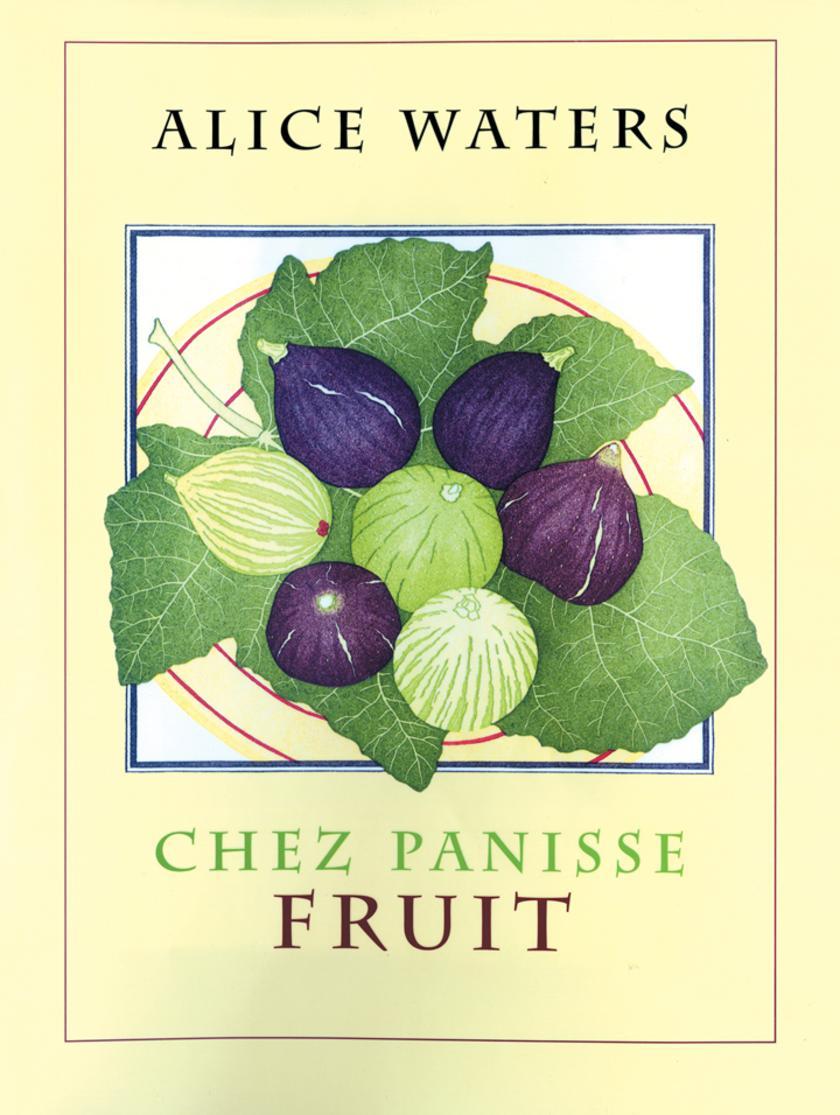
Chez Panisse Fruit
¥193.79
In 2001 Chez Panisse was named the number one restaurant in America by Gourmet magazine -- quite a journey from 1971 when Alice Waters opened Chez Panisse as a place where she and her friends could cook country French food with local ingredients and talk politics.As the restaurant's popularity grew, so did Alice's commitment to organic, locally grown foods and to a community of farmers and producers who provide the freshest ingredients, grown and harvested naturally with techniques that preserve and enrich the land for future generations. After thirty years, the innovative spirit and pure, intense flavors of Chez Panisse continue to delight and surprise all who visit, and even those who cant get there know that Alice started a quiet revolution, changing the culinary landscape forever. Inspired by Chez Panisse, more and more people across the country are discovering the sublime pleasures of local, organic vegetables and fruits.Now join Alice Waters and the cooks at Chez Panisse in celebration of fruit. Chez Panisse Fruit draws on the exuberant flavors of fresh, ripe fruit to create memorable dishes. In this companion volume to Chez Panisse Vegetables, discover more than 200 recipes for both sweet and savory dishes featuring fruit. Glorify the late-summer peach harvest with Peach and Raspberry Gratin, and extend the season with Grilled Cured Duck Breast with Pickled Peaches. Enjoy the first plums in Pork Loin Stuffed with Wild Plums and Rosemary. Preserve the fresh flavors of winter citrus with Kumquat Marmalade or Candied Grapefruit Peel. Organized alphabetically by fruit -- from apples to strawberries -- and including helpful essays on selecting, storing, and preparing fruit, this book will help you make the very most of fresh fruits from season to season. Illustrated with beautiful color relief prints by Patricia Curtan, Chez Panisse Fruit is a book to savor and to treasure.
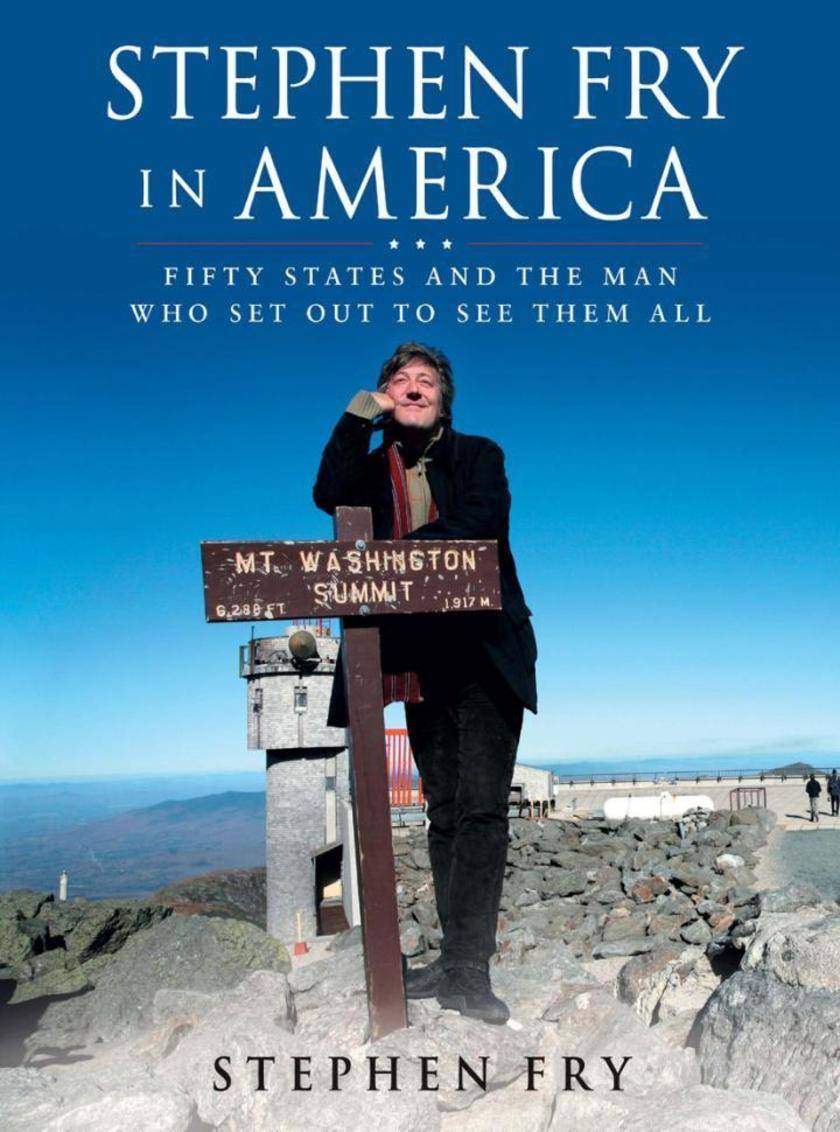
HarperCollins e-books
¥193.79
Britain's best-loved comic genius, Stephen Fry, turns his celebrated wit and insight to unearthing the real America as he travels across the continent in his chariot of Englishness, a black London cab. Stephen Fry has always loved America. In fact, he came very close to being born here. His fascination for the country and its people sees him embarking on an epic journey across America, visiting each of its fifty states to discover how such a huge diversity of people, cultures, languages, and beliefs creates such a remarkable nation. Stephen starts his journey on the East Coast and zigzags across America, stopping in every state from Maine to Hawaii, talking to each state's hospitable citizens, listening to music, visiting landmarks, viewing small-town life and America's breathtaking landscapes, following wherever his curiosity leads him. En route he discovers the South Side of Chicago with blues legend Buddy Guy, catches up with Morgan Freeman in Mississippi, strides around with Ted Turner on his Montana ranch, marches with Zulus in Mardi Gras in New Orleans, drums with the Sioux Nation in South Dakota, joins a Georgia family for Thanksgiving, "picks" with bluegrass hillbillies, and finds himself in a Tennessee garden full of dead bodies.Whether in a club for failed gangsters in Brooklyn, New York (yes, those are real bullet holes), or celebrating Halloween in Salem, Massachusetts (is there anywhere better?), Stephen is welcomed by the people of America mayors, sheriffs, newspaper editors, park rangers, teachers, and hoboes, bringing to life the oddities and splendors of each locale. A celebration of the magnificent and the eccentric, the beautiful and the strange, Stephen Fry in America is the author's homage to this extraordinary country.

The Herbal Kitchen
¥193.57
The secret to transforming easy dishes into extraordinary mealsFresh herbs. In The Herbal Kitchen, IACP award-winning cookbook author and acclaimed Herbfarm Restaurant chef Jerry Traunfeld presents simple dishes using herbs straight from the market, windowsill, or garden.Until recently, the fresh herbs available in supermarkets were limited to parsley and maybe dill. Today, thyme, rosemary, basil, cilantro, mint, and sage are among the many fresh herbs as close as the produce section or the farmer's market. Not to mention marjoram, lovage, tarragon, lavender, shiso, and so many others.Jerry shows you how to incorporate these fresh herbs into your everyday home meals. So whether preparing a workday supper for the family, a special dinner for two or four, or a feast for a table of guests, using fresh herbs in your cooking will result in fresh and vibrant food.The Herbal Kitchen includes some recipes that are home variations of the innovative dishes Jerry prepares at the Herbfarm, while others are fresh takes on familiar classics such as Herb Garden Lasagna or Shrimp in Garlic-Sage Butter. All are uncomplicated and prep time is minimal -- with the emphasis on spontaneity and the unmistakable flavors of fresh herbs.Start off with Asparagus and Lemon Thyme Soup, Spicy Verbena Meatballs, or Rye-Thyme Cheese Straws before moving on to Cinnamon Basil Chicken, Side of Salmon Slow-Roasted in Dill, and Root Ribbons with Sage. Delectable desserts include Warm Lavender Almond Cakes, Rhubarb Mint Cobbler, and a sinful Chocolate Peppermint Tart.Once you're hooked on cooking with fresh herbs, you'll want to grow them yourself. The Herbal Kitchen is filled with important tips for growing, harvesting, and handling each of the herbs used in the recipes. Valuable information on the varieties of each herb is also highlighted, such as how to tell the difference between Greek oregano and Italian oregano, why you always want to choose bay laurel over California bay, and what type of lavender is best for cooking.Filled with stunning photos of the herbs, the techniques for handling them, and the finished dishes, Jerry's definitive guide is sure to be a classic, reached for again and again.

Star of the Morning: The Extraordinary Life of Lady Hester Stanhope (Text Only)
¥192.67
The dramatic story of Lady Hester Stanhope – a wilful beauty turned bohemian adventurer – who left England as a young woman, unashamedly enjoyed a string of lovers and established her own exotic fiefdom in the Lebanese mountains where she died in 1839. Ambitious, daring and uncompromising, Lady Hester Stanhope was never cut out for a conventional life. Born into an illustrious political dynasty, she played society hostess for her uncle, William Pitt the Younger. After his death, she struck out for unchartered territory, setting sail with her lover for the Mediterranean and Constantinople – turning her back on England, as events would transpire, forever. It was in the Middle East, however, that she found her destiny. As the greatest female traveller of her age, she was the first western woman to cross the Syrian desert, where she was hailed by the Bedouin as their ‘Star of the Morning’. From her labyrinthine fortress in the mountains of Lebanon, where she established what amounted to her own fiefdom, she exerted a canny influence over the region's devious politics. Hers was a life of adventure and intrigue – yet in the years following her death her remarkable story has been largely dismissed, reworked by the Victorians into a cautionary tale for young women with wayward tendencies. This captivating biography, drawing on fresh research from three continents, resurrects Hester as the complex, courageous and fearless woman she was, bringing to life her hidden loves, friendships and ambitions. More than a mere traveller, here was a woman whose aspirations led her straight to the heart of the shadowy race for influence between the great powers of the nineteenth century – a world of shifting alliances, double agents, romance, intrigue and murder. Above all, Lady Hester Stanhope was a woman driven by her desire to make a mark on the world, whose search for love and spiritual meaning in a war-torn Middle East provide an illuminating and moving parallel for our time.

Garden Natural History (Collins New Naturalist Library, Book 102)
¥192.67
In a much-anticipated addition to the New Naturalist library, Stefan Buczacki takes a broad look at the relatively unexplored world of the garden, and its relevance within the context of natural history overall. Though gardens are often viewed merely as artificial creations rather than easily accessible places to observe and encourage wildlife, ‘Garden Natural History’ rectifies this misconception. By viewing gardens within the wider context of the British ecological landscape, Buczacki follows the garden's development as a habitat within which vertebrates, invertebrates and native and alien plants alike have been introduced and to which they have adapted. ‘Garden Natural History’ offers a fascinating insight into the diversity of organisms and ecological processes that constitute the garden, whilst also highlighting the role of the gardener as conservator and showing how the garden can inspire all naturalists.

Galloway and the Borders (Collins New Naturalist Library, Book 101)
¥192.67
Another volume in the widely-read New Naturalist series, this book is an in-depth study of the natural developments and history of Galloway and surrounding areas. Often overlooked due to the reputation of natural habitat in other parts of the country, the author here conveys the diversity and magnificence of nature in the south of Scotland. Galloway and the borders is an extremely varied region, from saltmarshes and shingle beaches to rocky islands and seabird stations. The wide range of hills, displaying a wealth of rich colours, give the area its dominant character. The varied selection of flora and fauna only add to the diversity.

Architectural Plants
¥192.67
Christine Shaw is the author of the hugely successful Collins Practical Gardener: Architectural Plants. She studied horticulture at the Isle of Wight Horticultural College while working nights as a croupier. She has worked at Angus White's famous Architectural Plants nursery near Horsham, and set up a new branch at Chichester in 1996, which she continues to run. In addition, Christine has established a successful career for herself as a freelance horticultural journalist, writing articles for The English Garden, Garden Inspirations, RHS The Garden and Exotic Gardening.

Dragonflies (Collins New Naturalist Library, Book 106)
¥192.67
Dragonflies are among the most ancient of living creatures – few insect groups fascinate as much or are more immediately recognisable. In this seminal new work, Philip Corbet and Stephen Brooks examine the behaviour, ecology and distribution of dragonflies in Britain and Ireland, placing emphasis on the insects' habitats and also on measures needed to conserve them. Published in 1960 – with Philip Corbet as contributing author – volume 41 of the New Naturalist series provided the first in-depth study of the biology of British dragonflies, helping to inspire many people to take an interest in these intriguing insects. In this new volume, Corbet has teamed up with Stephen Brooks, offering a fascinating new outlook on the natural history of dragonflies. The authors have combined their knowledge and experience to help illuminate the relevance of British dragonfly species, placing them in the overall context of natural history from a broader, worldwide perspective. Illustrated with beautiful photography throughout, New Naturalist Dragonflies explores all aspects of the biological significance of dragonfly behaviour, thus revealing the beauty and hidden complexity of these powerful, agile, flying predators.
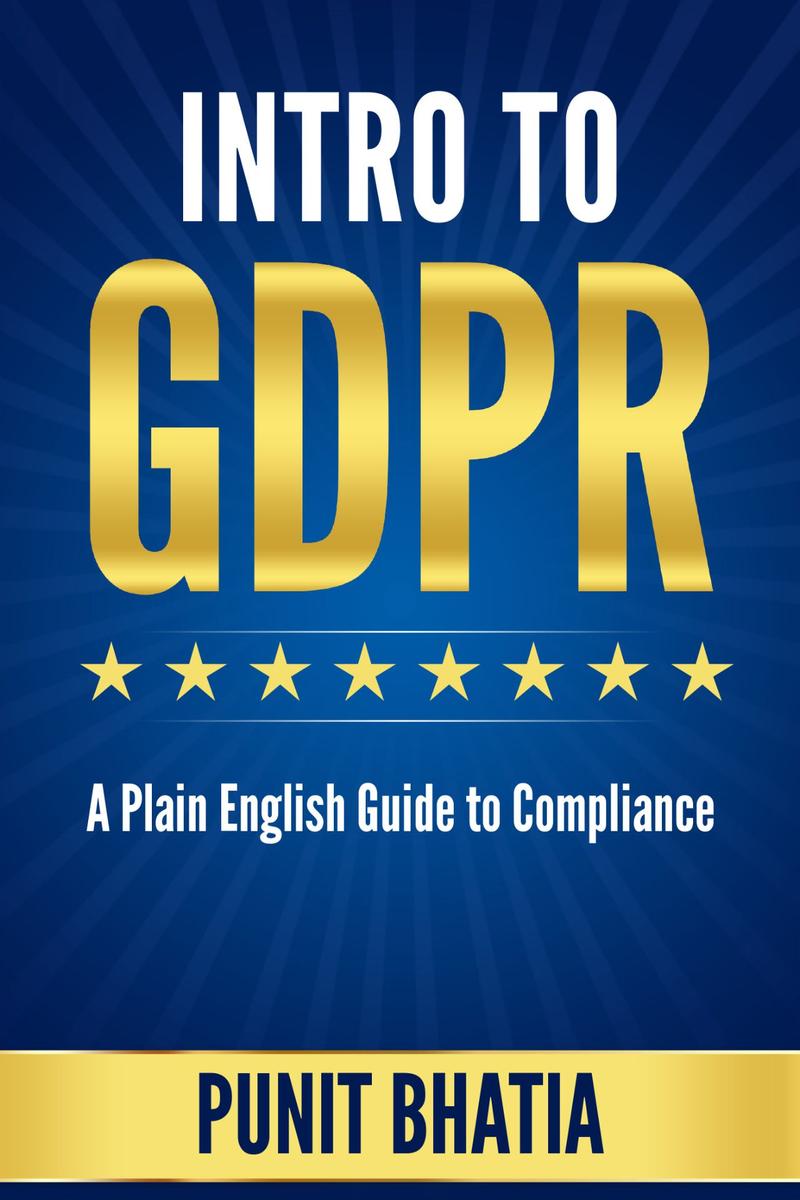
Intro to GDPR: A Plain English Guide to Compliance
¥192.11
Intro to GDPR is written by experienced data protection professional Punit Bhatia. Bhatia has served as the Privacy and Protection Officer in an EU-based bank and lecturer at the Solvay Brussels School of Economics and Management. He is Certified Information Privacy Professional ? Europe (CIPP-E), Certified Information Privacy Manager (CIPM), and Certified Outsourcing Professional (COP). Bhatia will lead you through the complex journey to the GDPR compliance with the simple language and many practical examples. Whether you are a complete beginner or experienced data protection practitioner this book is the right resource for you. Intro to GDPR is a complete guide to compliance. Bhatia uses the simple language, understandable to everyone in order to lead you from the introduction all the way to getting your organization GDPR compliant. In this book you will learn: 1. Which organisations need to be compliant with the GDPR? 2. Key terms in the GDPR. You will get familiarized with key terms that form the basis of the GDPR. You will learn definitions of terms: “Personal data”, “Special categories of personal data”, “Processing” difference between terms “Controller” and “Processor” and others. 3. Myths about the GDPR like “the GDPR is only applicable in the EU”, “The GDPR is about fines” and others. 4. Transparency through the privacy notice. As written in the book, “transparency is one of the key principles in the EU GDPR” so it is important to understand what is transparency and privacy notice but also what are the key requirements and contents of a privacy notice. 5. Data breaches. “GDPR requirements on data breaches are different for controllers and for processors” – this chapter will make you aware of data breach requirements and key actions that are required once a breach is detected. 6. What is the first thing to do to become compliant and what are the key factors to remain compliant with the GDPR, and much more. Written in plain English, with many practical examples, Intro to GDPR is the only book you need on the subject of GDPR.

In the Home of the Famous Dead
¥192.08
In the Home of the Famous Dead will appeal to newcomers as well as to avid followers of Jo McDougall's long career and complex work, providing valuable insights to the development of a poet's signature, inimitable style. This collection presents work known for its sparse, compact language; surprising metaphor; humor; irony; idiomatic speech; and a stoic, sadly earned wisdom concerning death and loss. In McDougall's world, folks making do with what they have take the stage to speak of, in the words of one critic, "e;the tangled mysteries of their faltering lives."e; Her work has been described as having "e;excruciating honesty"e; (Gerald Stern), giving voice to the "e;ineffable emotions of plain people"e; (Judith Kitchen). Miller Williams notes that the work has "e;cleanness and clarity . . . in all the funk and smell of humanity."e; This is the poetry of midwestern plains and southern botttomlands, of waitresses and professors, farmers and bankers, the disadvantaged and privileged alike. Often beginning in the personal and expanding to the universal, this poet takes note of the phenomenological world with a mixture of joy, despair, and awe, providing a haunting look at the cosmic irony of our existence. McDougall's style is indescribable, yet wholly accessible. As Kelly Cherry notes, "e;Call it magic, call it art; either way [Jo McDougall's work] is something like a miracle."e;

A Modern Way to Eat
¥191.59
‘A simply brilliant book – modern, clever, beautiful and full of delicious recipes.’ Jamie Oliver A modern vegetarian cookbook packed with quick, healthy and fresh recipes, that fits perfectly with how we want to eat now. How we want to eat is changing. More and more people want to cook without meat a couple of nights a week, or are looking for interesting ideas for dishes for their vegetarian friends (whilst pushing their own vegetarian repertoire beyond a red onion and goat’s cheese tart or a mushroom risotto). At the same time we want to eat food that is a little lighter, a little healthier, a little easier on our pockets, but that won’t have us chopping mountains of veg or slaving over the stove for hours. Anna Jones is a brilliant young cook and food writer, who worked with Jamie Oliver for many years. Her first cookbook is a totally modern take on vegetarian eating – recipes that are healthy, nourishing, truly tasty and satisfying, introducing new dishes that are simple to make. Based on how Anna likes to eat day to day, A Modern Way to Eat covers everything from a blueberry and amaranth porridge to start the day to a quick autumn root panzanella or avocado, butterbean and miso salad for lunch; a tomato and coconut cassoulet, pistachio and squash galette, or mint, ricotta and courgette polpette for dinner. Packed with recipes that explore the full breadth of vegetarian ingredients – different grains, nuts, seeds and seasonal vegetables – and alternative approaches to cooking that avoid too much dairy or heavy carbs and gluten, this is a cookbook for how we want to eat now.
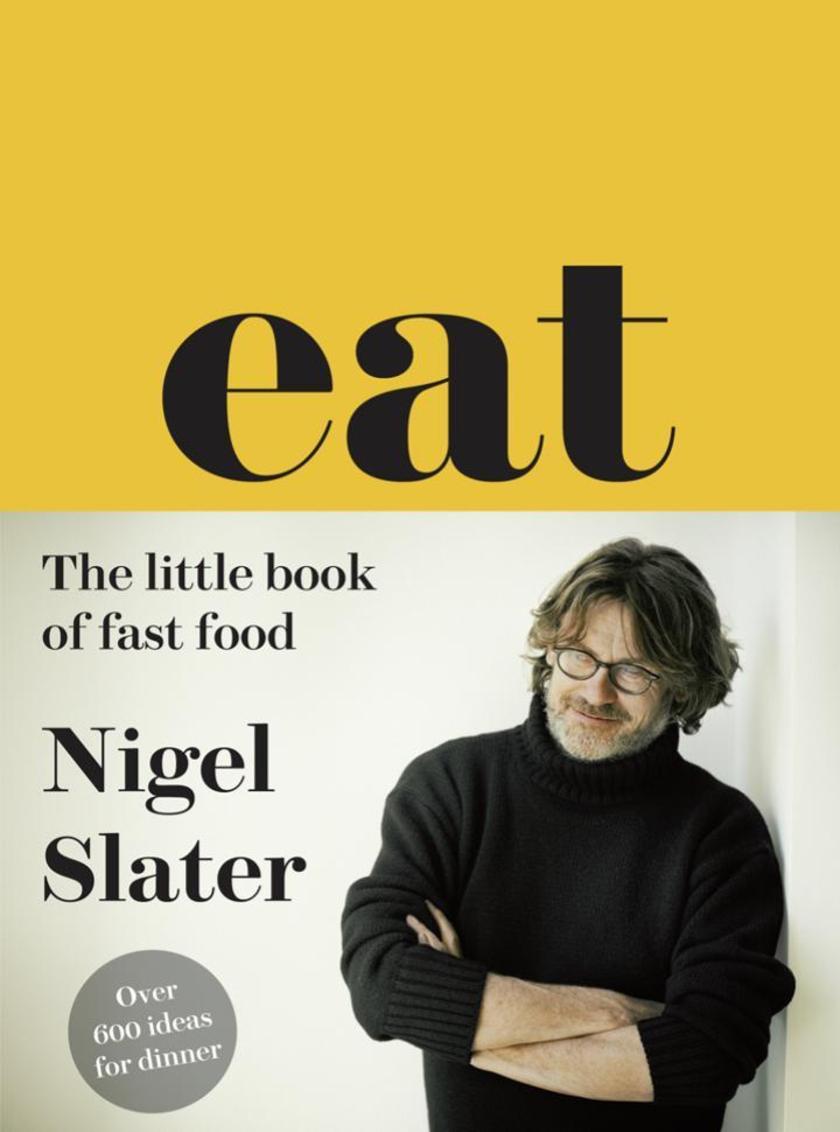
Eat – The Little Book of Fast Food
¥191.59
From the star of BBC One’s ‘Nigel and Adam’s Farm Kitchen’ this beautiful and easy-to-use follow-up to ‘The Kitchen Diaries II’ contains over 600 recipe ideas and is your essential go-to for what to cook every day. Returning to the territory of Nigel’s bestselling ‘Real Fast Food’, ‘Eat’ is bursting with beautifully simple and quick-to-cook recipes, in a stylish and practical flexible format that’s easy to read and use anywhere. Enjoy sizzling chorizo with potatoes and shallots; a sharp and fresh green soup; a Vietnamese-inspired prawn baguette; a one-pan Sunday lunch. Chosen by Amazon as the Best Food & Drink Book of the Year and tipped in the Guardian to be the biggest selling cookery title of 2013, the book covers everything from quick meals to share with friends to comfort food. ‘Eat’ is a new, and highly innovative, classic from Nigel Slater.
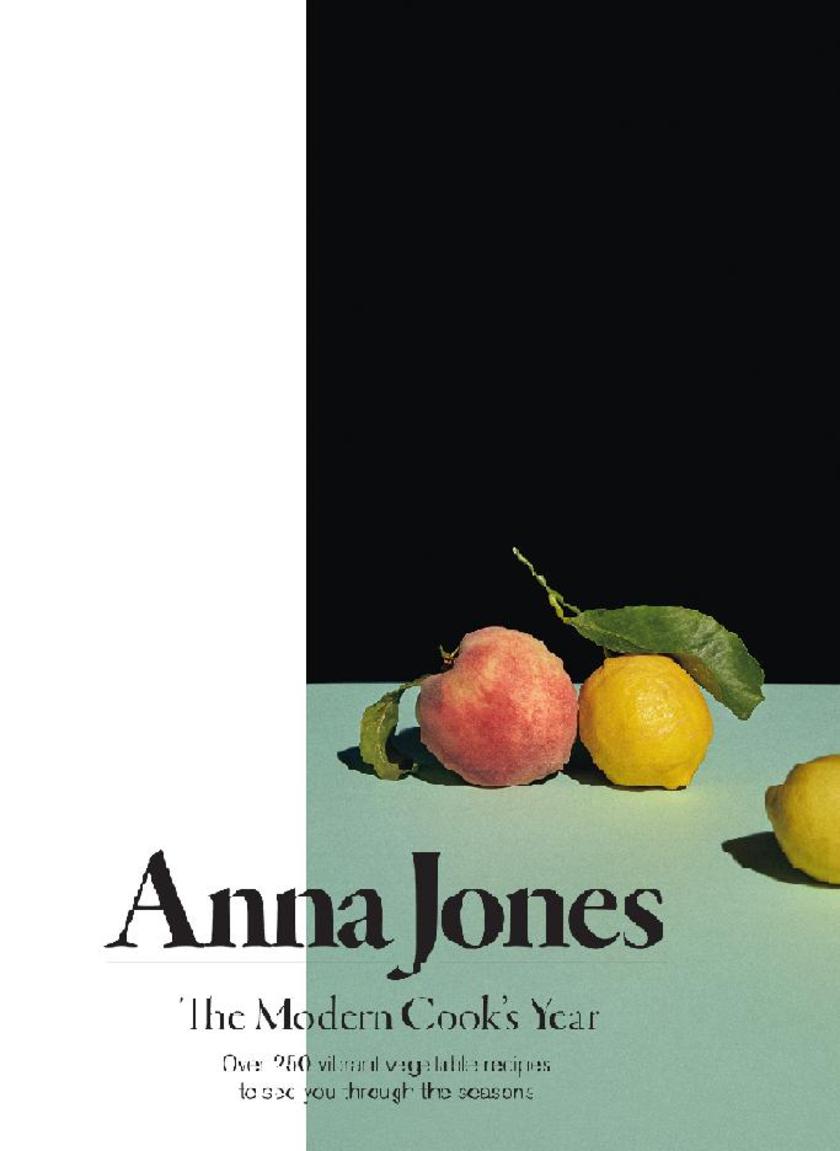
The Modern Cook’s Year: Over 250 vibrant vegetable recipes to see you through th
¥191.59
Anna Jones is a cook, food writer and stylist. One grey, late-for-the-office day, she decided to quit her day job after reading an article about following your passion. Within weeks, she was signed up on Jamie Oliver’s Fifteen apprentice programme. She went on to be part of Jamie’s food team – styling, writing and working behind the scenes on books, TV shows and food campaigns. She has also worked with other well-known chefs, such as Henry and Tom Herbert (The Fabulous Baker Brothers), Stevie Parle and Antonio Carluccio, and cooked for royalty, politicians and LA school children alike. She lives, writes and cooks in Hackney, East London.

Kitchenella: The secrets of women
¥191.59
Kitchenella: the heroic feminine cook. The continuing story of the rise and fall of good food finds us at the end of a decade of exceptional growth and opportunity, yet once again in crisis. We believe in food icons and celebrity chefs, but their philosophies are no longer convincing, because they cannot possibly understand the predicament of the average family, living through recession and trying to do it right in the kitchen. Where are the cooks with wit, who work out the budget and plan an easy dish that efficiently feeds family and friends? Full of logical, economical and imaginative recipes that solve the modern cook's dilemma, Kitchenella will teach you the skills of those teachers who work without books, the 'mothers' and the cooks who subsequently learned from them, to decisively show you the easy way to cook and shop. Promoting a modest, simple way to cook, Kitchenella shows cooking is not about showing off and extravagance, but generosity and kindness; a subtle and intelligent way to nurture. It is cooking that is economically sustainable and achievable. It has its roots in the learned, spirited cooking of generations, food that can claim to have helped win wars and saved lives; a style of cooking that is still relevant today, by practically addressing the struggles of modern cooks, both men and women. The ambition to cook is a fantasy for many, yet Kitchenella shows how the everyday struggle to put food on the table can be transformed into cooking that is clever and beautiful.
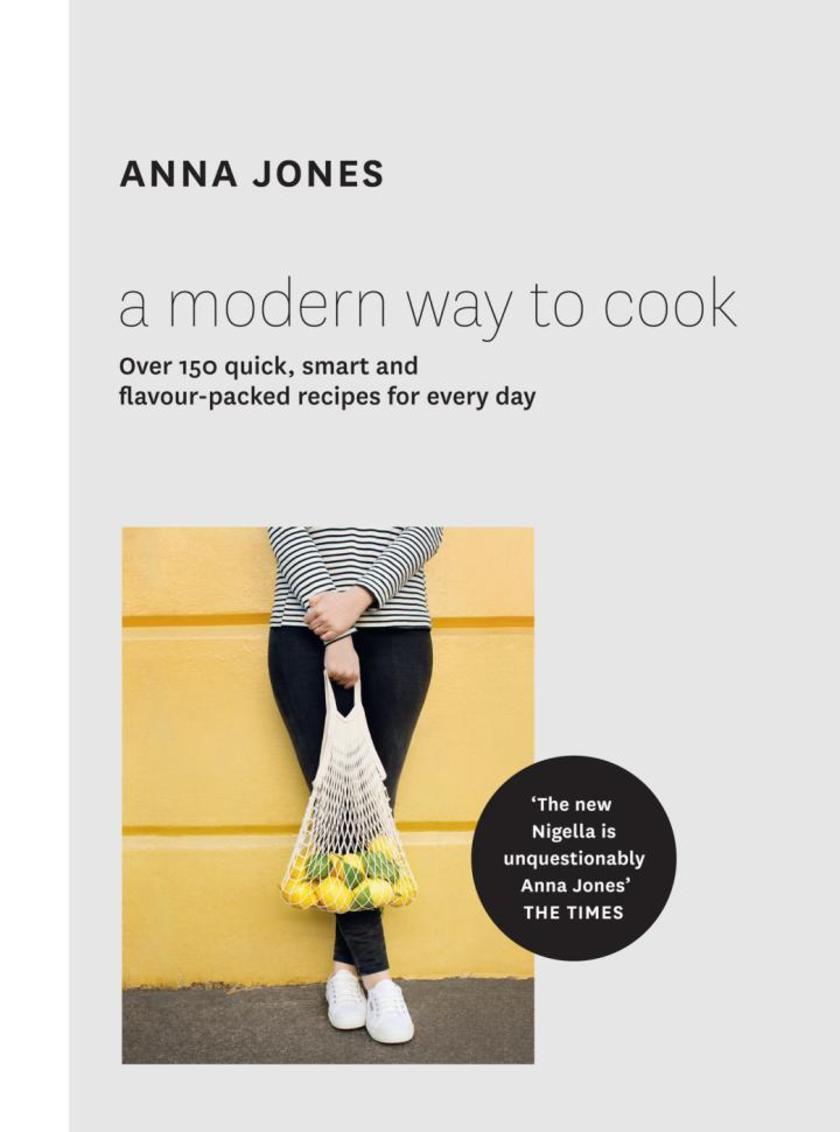
A Modern Way to Cook
¥191.59
From the author of the brilliant A Modern Way to Eat, a new collection of delicious, healthy, inspiring vegetarian recipes – that are so quick to make they’re achievable on any night of the week. Many more of us are interested in eating healthier food on a regular basis but sometimes, when we’re home late, tired after work, and don’t have time to buy lots of ingredients, it can just seem too complicated. In this brilliant new collection of recipes, Anna Jones makes clean, nourishing, vegetable-centred food realistic on any night of the week. Chapters are broken down by time (recipes for under 15, 20, 30 or 40 minutes) and also by planning a little ahead (quick healthy breakfasts, dishes you can make and re-use throughout the week). Anna’s new book is a truly practical and inspiring collection for anyone who wants to put dinner on the table quickly, without fuss, trips to specialist shops or too much washing up, but still eat food that tastes incredible and is doing you good.




 购物车
购物车 个人中心
个人中心



